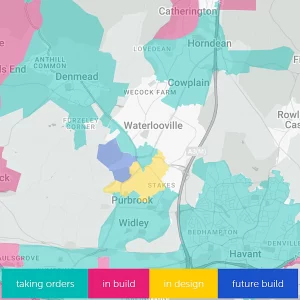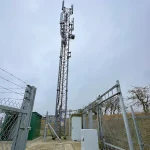Sponsored Links
World Bandwidth Costs for Consumer Broadband ISP Services Continue to Fall
Posted: 07th Jun, 2011 By: MarkJ
 Point Topic, a UK telecoms analysts firm, has reported that residential consumer broadband prices per Megabit (Mb) have continued to fall in 2011. The issue is particularly prominent in Latin America, where a price drop of 40% has occurred between Q4 2009 and Q1 2011.
Point Topic, a UK telecoms analysts firm, has reported that residential consumer broadband prices per Megabit (Mb) have continued to fall in 2011. The issue is particularly prominent in Latin America, where a price drop of 40% has occurred between Q4 2009 and Q1 2011.The sharpest falls have come from the new generation of fibre optic broadband ISP services, which offer significantly faster speeds ( 100Mbps+ ). Most related deployments are still in the early stages and as this spreads it will lead to growing competition between suppliers and ISPs, which often results in lower prices.
Fiona Vanier, Senior Analyst at Point Topic, said:
"We can see from the data that of course some markets are changing more rapidly than others. They tend to be where there might have been more margins in the original pricing or the operators are significantly out of step with what their competitors have managed to put together.
Consumers still perceive speed, or downstream bandwidth to be more precise, as a significant factor in their decision making. This works up to a point. There is evidence that residential consumers in particular are having difficulty imagining what they can do with more than 50Mbps today and their purchasing decisions are not driven by bandwidth as much as they used to be.
It will prove increasingly difficult to differentiate yourself as a broadband supplier based just on higher and higher headline bandwidths. The mature broadband markets in particular are entering a phase where value added services and customer relationships will be more and more important. The downside is that consumers could be seeing the end of significant increases in bandwidth or reductions in tariffs."
"We can see from the data that of course some markets are changing more rapidly than others. They tend to be where there might have been more margins in the original pricing or the operators are significantly out of step with what their competitors have managed to put together.
Consumers still perceive speed, or downstream bandwidth to be more precise, as a significant factor in their decision making. This works up to a point. There is evidence that residential consumers in particular are having difficulty imagining what they can do with more than 50Mbps today and their purchasing decisions are not driven by bandwidth as much as they used to be.
It will prove increasingly difficult to differentiate yourself as a broadband supplier based just on higher and higher headline bandwidths. The mature broadband markets in particular are entering a phase where value added services and customer relationships will be more and more important. The downside is that consumers could be seeing the end of significant increases in bandwidth or reductions in tariffs."

Many UK consumers might recently have noticed a slightly different trend over this side of the pond. Some big ISPs (e.g. O2) have actually been putting their prices up and well beyond the adjustment needed to reflect an earlier hike in Value Added Tax (VAT) to 20%.
At least part of this can be attributed to the many burdens being placed upon UK internet providers by the government, such as new data retention rules and the Digital Economy Act (DEA) for tackling internet copyright infringement.
Stricter rules on the promotion of broadband speeds and usage allowances will also force some providers to be more realistic about what they can actually deliver. This is particular important at a time when many ISPs are having to cope with soaring demand for online video content. Tougher restrictions or high prices are thus a very real possibility, although Point Topic believes that the weight of competition will ultimately serve to keep prices low.. at least for now.
Search ISP News
Search ISP Listings
Search ISP Reviews
Latest UK ISP News








Cheap BIG ISPs for 100Mbps+
150,000+ Customers | View More ISPs
Cheapest ISPs for 100Mbps+
Modest Availability | View More ISPs
Latest UK ISP News
Helpful ISP Guides and Tips
Sponsored Links
The Top 15 Category Tags
- FTTP (6798)
- BT (3881)
- Politics (3074)
- Business (2766)
- Openreach (2663)
- Building Digital UK (2512)
- Mobile Broadband (2475)
- FTTC (2142)
- Statistics (2127)
- 4G (2092)
- Virgin Media (2024)
- Ofcom Regulation (1779)
- 5G (1732)
- Fibre Optic (1604)
- Wireless Internet (1595)
Sponsored
Copyright © 1999 to Present - ISPreview.co.uk - All Rights Reserved - Terms , Privacy and Cookie Policy , Links , Website Rules































